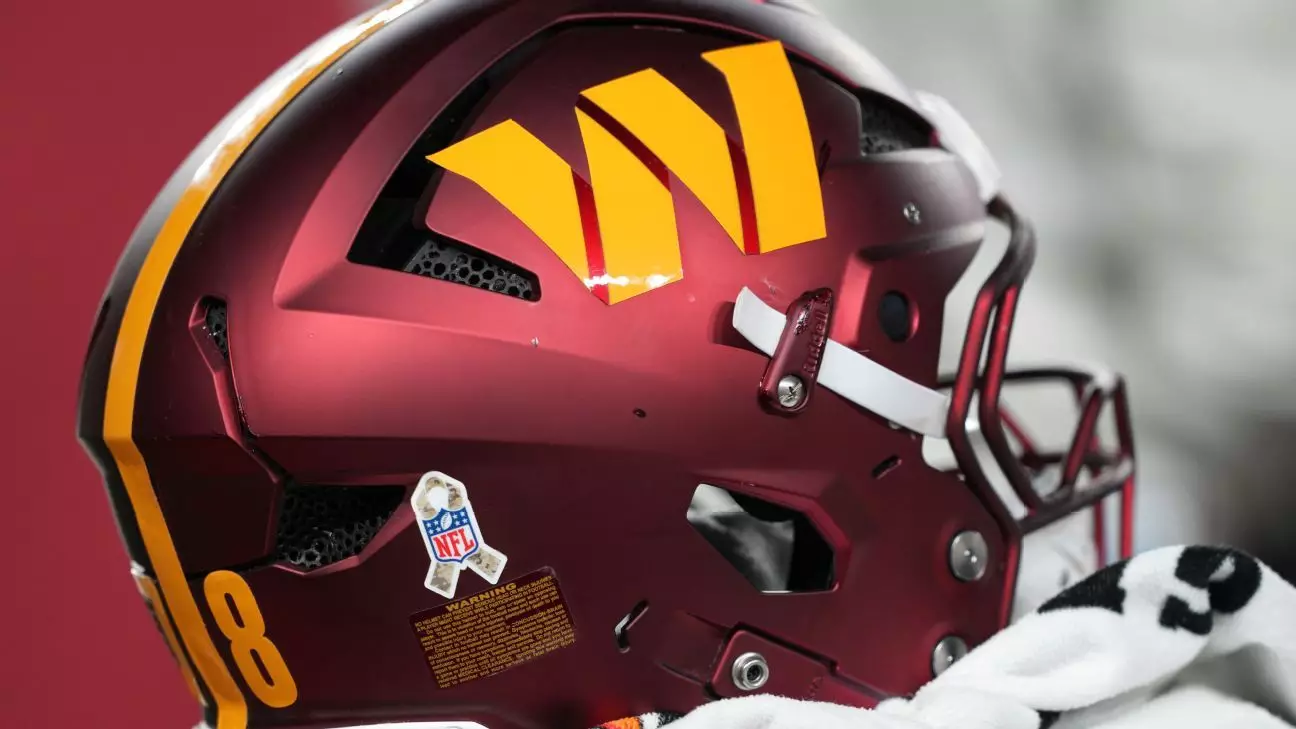The Washington Commanders, a franchise steeped in history and recent turmoil, are ushering in a new chapter with the appointment of Mark Clouse as their president. This decision marks a significant shift in the team’s management and operational philosophy, especially considering the backdrop of scandals and internal strife that characterized the previous ownership era under Dan Snyder. Clouse, previously at the helm of The Campbell’s Company, steps into a role that has been revamped and redefined amid ongoing efforts to clean up and rejuvenate the organization.
Clouse’s entry endows the Commanders with a leader whose narrative uniquely blends military discipline with corporate acumen. As a West Point graduate and former helicopter pilot, he embodies leadership qualities that transcend traditional business environments. His experience in leading Campbell’s during pivotal partnerships with NFL teams, including the Commanders, indicates a familiarity with both the league and the community that surrounds it.
One of the crucial themes emerging from Clouse’s hire is his reputation for being a “culture builder.” With his background and insights, he is expected to focus heavily on fostering a positive organizational culture that resonates with both staff and fans. This focus on culture is essential not merely for the internal stability of the franchise but also for rebuilding trust with a fan base disillusioned by past misdeeds and failures.
Josh Harris, the majority owner, emphasized Clouse’s leadership capabilities, suggesting that a trustworthy culture can drive success both on and off the field. The importance of creating an environment in which players and staff feel supported and empowered cannot be overstated, especially in a high-pressure league like the NFL. Harris’s sentiments echo an industry-wide recognition that culture is as pivotal as strategy in achieving long-term success.
Clouse will oversee business operations, while general manager Adam Peters continues to navigate football decisions independently of Clouse. This delineation of roles is crucial, as it aims to streamline functions within the organization without overlap, which could confuse employees or dilute accountability. The Commanders’ executive structure is now clear, with distinct channels for business and football operations, which is a vital step toward presenting a unified front amid the previous chaos.
The presence of new faces in leadership roles—Peters as GM, Dan Quinn as head coach, and now Clouse—suggests an organizational reset that signals to fans, players, and potential recruits that the Commanders are mending their ways. With a young quarterback in Jayden Daniels, who has shown promise, the team appears poised for growth and development on the field—a much-needed departure from the bleak performance history that had plagued the franchise.
A fresh gust of optimism sweeps through the fanbase, stemming from the combination of leadership changes, a competitive record of 8-5, and the promising performances of new players like Daniels. Fans who had become weary from years of mediocrity and myriad controversies—ranging from ownership scandals to accusations of organizational mismanagement—appear reinvigorated by these progressive changes.
This sentiment is particularly significant, as a passionate and engaged community is vital for a franchise’s success. Clouse’s previous roles—in a globally recognized company and within his community—become integral to his mission of rebuilding the connection between the Commanders and their supporters.
Mark Clouse’s appointment as president might be one of the most substantial moves the Washington Commanders have made in recent years. As a leader who understands both the gravity of his responsibilities and the potential for renewal, Clouse’s strategic approach could propel the team toward the stable, flourishing environment it desperately needs. If he can weave the threads of strong leadership, a commitment to culture, and community engagement, the Commanders may not only revive their reputation but also lay a solid foundation for future successes both on and off the field. As the organization transitions into this new era, all eyes will be on Clouse and Harris to see how their vision translates into the revitalization of the once-storied franchise.


Leave a Reply